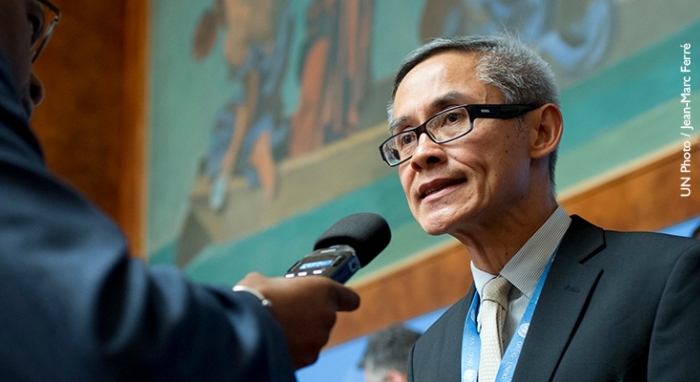
UN experts | Appointments should ensure independence, expertise and diversity
Even as ISHR and its partners call for a transparent and merits based selection of UN independent experts – one which also prizes diversity – male candidates top the shortlists for upcoming appointments.
In a letter, ISHR, Amnesty International and five other NGOs have published a checklist for the selection of candidates for UN Special Procedure mandates. The letter is addressed to the Consultative Group, which is comprised of five Ambassadors, and which is responsible for recommending shortlists of three candidates for each of the positions.
Helen Nolan, Training and Advocacy Support Manager at ISHR explains that Special Procedures are the eyes and ears of the Human Rights Council, with mandates to report and advise on human rights from a thematic or country-specific perspective.
The letter was sent as the Consultative Group was considering candidates for four Special Procedure mandate holders in the upcoming session of the 35th Human Rights Council.1 Despite ISHR and its partners’ emphasis on the need to ensure gender diversity, the top choice of the Consultative Group for each of the four appointments is male. Moreover, all three nominees selected for the Special Rapporteur on the human rights of migrants are male.
‘It is wholly unacceptable in 2017 that the Consultative Group itself is entirely comprised of men, and that the number one candidate recommended by them for every mandate is also a man,’ said Nolan. ‘As a bare minimum, the Consultative group should follow the Guidelines on Gender Parity, and States should already be moving beyond this basic idea to ensure that trans and gender non-binary people are also represented.’
Nolan emphasises that ‘if they are to have meaningful impact, these hugely important positions need to be held by experts selected and appointed through a transparent and merit based process.’ Nolan explained that the only way to find the best person for the job – and to ensure that the experts reflect the diversity of the global population – is by applying objective criteria.
The new generic checklist presented can be applied when considering the selection of all UN Special Procedure mandates. The criteria considers the candidate’s relevant:
- qualifications and skills;
- recognised competence; expertise;
- and flexibility and readiness to adapt in performing their functions
All while giving due consideration to equitable geographic representation, and to an appropriate representation of experts of different legal and social systems.
A central element of the criteria is independence. ‘Without this requirement, the recommendations made by Special Procedures may be put into question,’ explained Nolan. ‘Where it seems that there might be a conflict of interest, candidates must explain how they will deal with it to ensure that the Special Procedures and their recommendations cannot even be perceived to be biased,’ Nolan stated.
This checklist builds on previous civil society efforts. For example, earlier this year, ISHR joined other NGOs in proposing criteria for the selection and appointment of the new Special Rapporteur on the right to freedom of peaceful assembly and of association. Previously, ISHR along with Amnesty International and other NGOs released a checklist for the selection and appointment of a new UN expert on human rights defenders.
‘It’s because the work of the Special Procedures is so fundamentally important that we’re going to keep pushing for the use of these criteria. We are fighting for the integrity and strength of the system,’ declared Nolan.
Download the letter and checklist here.
